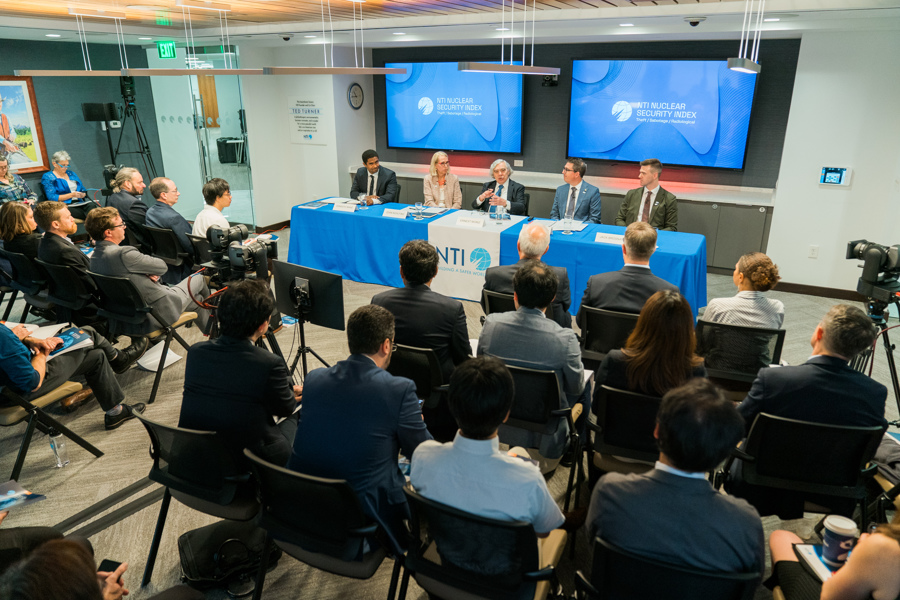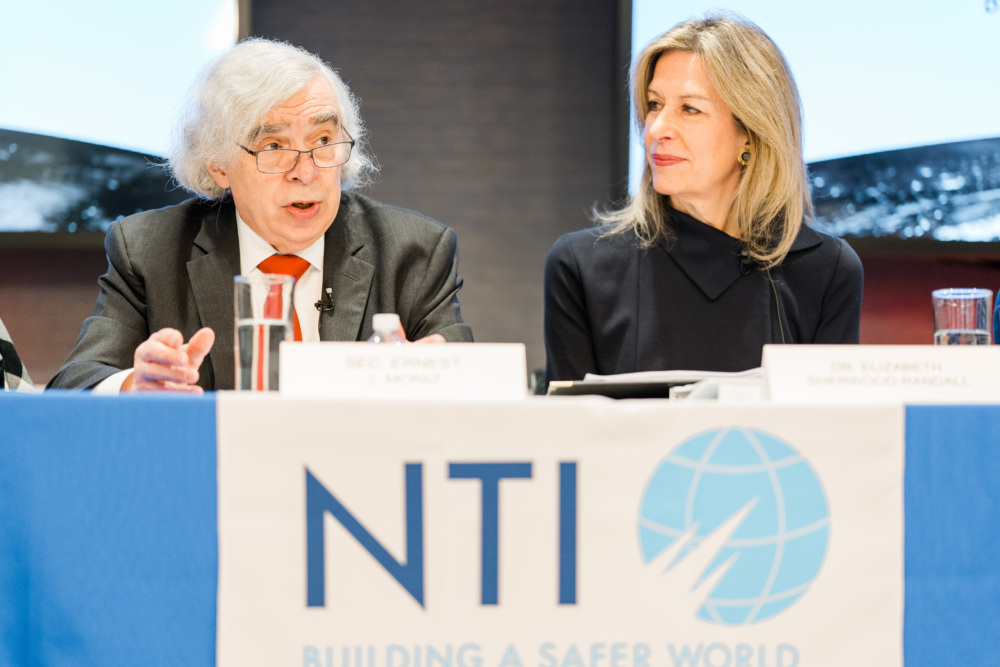Black Dawn Nuclear Terrorism Exercise Shows Europe Is Vulnerable; Participants Develop Action Agenda to Prevent Attack
In the wake of the Madrid terrorist bombings, leaders from across Europe met Monday to assess the threat of nuclear terrorism and to develop an action agenda to prevent a catastrophic attack, as part of Black Dawn, a scenario-based exercise held in Brussels.
In an unprecedented exercise involving approximately 55 officials and experts from 15 countries and half a dozen international bodies, leaders saw how terrorists could acquire highly enriched uranium (HEU) from civilian research reactors in or near Europe, make a crude nuclear bomb, and explode the device near NATO Headquarters.
While most exercises focus on what to do after an attack has occurred, the purpose of Black Dawn was to develop recommendations for preventing nuclear terrorism. The full details of the exercise are not being released for security reasons.
Participants included European Union High Representative Javier Solana, Ambassador Rolf Ekeus, former U.S. Senator Sam Nunn and current and former senior officials from the European Council, the European Commission, the North Atlantic Treaty Organization and the International Atomic Energy Agency. NATO Secretary General Jaap de Hoop Scheffer was a co-convener of the event.
“We are in a race between cooperation and catastrophe,” said Senator Nunn, co-chairman of the Nuclear Threat Initiative (NTI). “To win this race, we have to achieve cooperation on a scale we’ve never seen or attempted before. Terrorists cannot hit the United States without staggering Europe, and they cannot hit Europe without staggering the United States. Our greatest perils are the threats that all nations face together, and that no nation can solve on its own.”
“The threat of catastrophic terrorism is not confined to the United States or Russia or the Middle East,” said the European Union’s High Representative Javier Solana. “The new terrorist movements seem willing to use unlimited violence and cause massive casualties. Europe is both a target and a base for such terrorists.”
Among the themes of Black Dawn were:
-
The threat of nuclear terrorism is real. A terrorist nuclear attack on U.S. or European interests is consistent with al Qaeda’s objectives and its profile. It is well within al Qaeda’s operational capabilities to recruit the technical expertise needed to build a crude nuclear device. The designs and the non-nuclear components can be easily obtained. Only 25% of nuclear bomb-making material in Russia is under the protection of comprehensive security upgrades, leaving enough poorly secured material to make tens of thousands of weapons. Most of the 130-plus HEU civilian research reactors around the world lack the security measures necessary to prevent terrorist theft or diversion of weapons-usable materials. Once the material is missing, it is difficult – if not impossible – to interdict. Some of the inadequately secured research reactors that use Soviet-furnished weapons-usable uranium are located in and around Europe.
-
It could happen here in Europe. There are numerous targets in Europe that are attractive to al Qaeda and other extremists. Europe is now a key base of operations and recruiting for al Qaeda — which has cells in virtually every European country. Moreover, if al Qaeda or another of these groups obtained nuclear materials in Europe, security and logistical concerns could lead them to select a target in Europe, instead of the United States.
-
We can take concrete steps to significantly reduce the risk of terrorists acquiring nuclear, biological and chemical weapons. The action agenda is clear — we know where the dangerous and vulnerable materials are; we know what has to be done; and we know how to do it. Prevention is the only answer to dealing with nuclear terrorism; there are no other good options.
-
Europe has a leadership role to play, in contributing resources, defining the agenda, removing obstacles to implementation, and getting the job done. The world community cannot win this race without a global partnership against catastrophic terrorism.
-
We need to act now. Terrorists are racing to get nuclear weapons and materials, and we are not yet racing to stop them. Our leaders must acknowledge by their actions, by their resource priorities, and by their cooperation that the threat of catastrophic terrorism is the most likely, most potentially devastating threat we face; that it threatens all of us equally; that it demands urgent action; that it requires a new level of cooperation.
Senator Nunn said he believed it was clear to most participants that “the most effective, least expensive way to prevent nuclear terrorism is to lock down and secure weapons and fissile materials in every country and in every facility that has them. No terrorist can launch a nuclear attack without weapon-grade material — plutonium or highly enriched uranium.”
Participants voiced support for specific recommendations for action — by the European Union, NATO, individual European governments, the United States and Russia — that can be taken now, before an attack occurs, including as top priorities:
-
Launch a “Global Cleanout” of HEU at research facilities worldwide;
-
Accelerate efforts to consolidate, secure and eliminate the most dangerous materials, such as HEU and plutonium;
-
Accelerate the consolidation of Russia’s nuclear weapons stockpile;
-
Expand efforts to employ former weapons scientists and personnel;
-
Increase transparency and accelerate destruction of tactical nuclear weapons;
-
Drastically increase and accelerate funding for chemical weapons destruction;
-
Establish a truly global partnership to reduce the risk of weapons of mass destruction, specifically bioterrorism;
-
Engage in biosafety/biosecurity confidence-building measures with Russia;
-
Strengthen international nonproliferation regimes and work toward their universal implementation;
-
Enhance and expand export controls;
-
Build national and international capabilities for detecting and interdicting weapons of mass destruction;
-
Establish international mechanisms for information sharing and crisis management; and
-
Improve counterterrorism measures, specifically by adding all countries to the international passport control database and by beginning a regular pattern of anti-terrorism exercises focused on missing material or missing weapons.
The exercise was sponsored by the Strengthening the Global Partnership project, a consortium of 21 research institutes in 16 European, Asian, and North American countries. The Project is led by the Center for Strategic and International Studies and is supported by the Nuclear Threat Initiative, a charitable organization working to reduce the threats from nuclear, biological and chemical weapons, co-chaired by Ted Turner and Sam Nunn.
###




